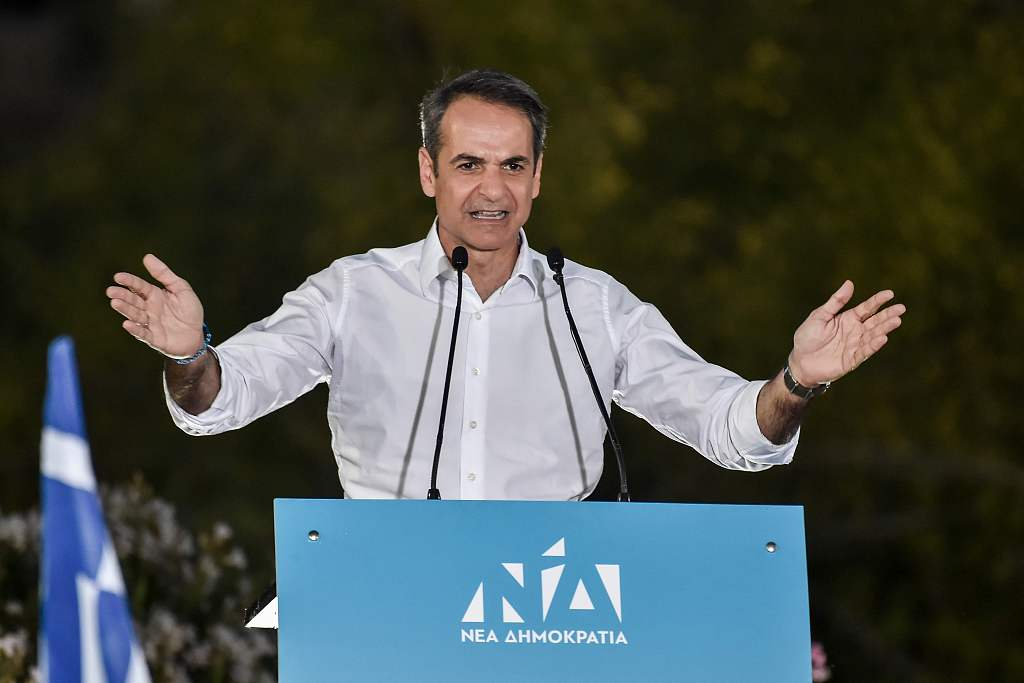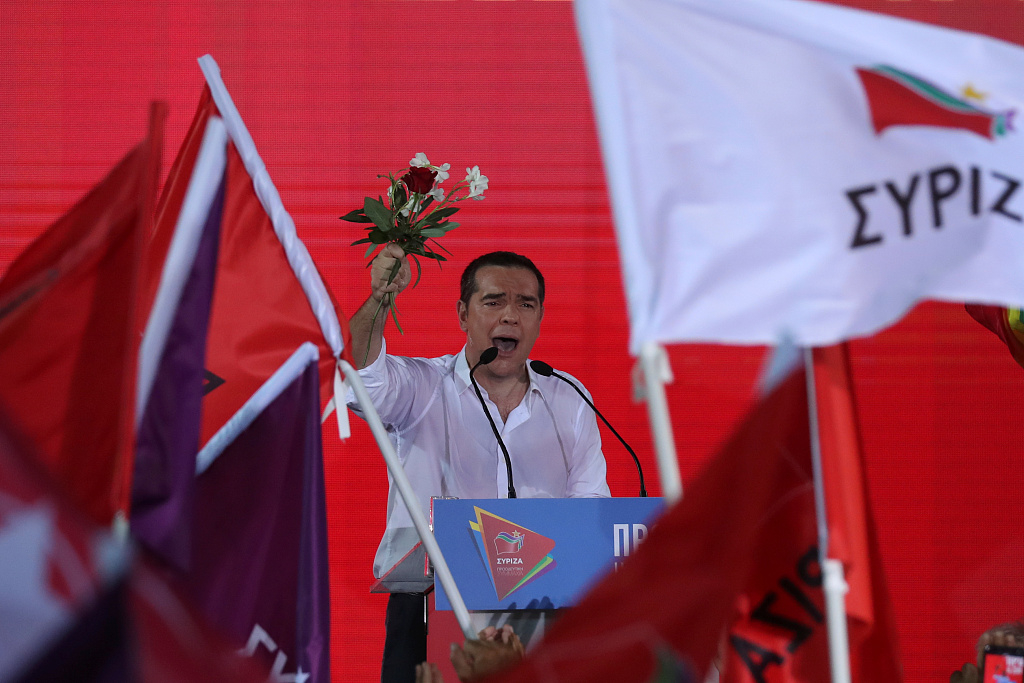

Is the so-called "new era" promised by the New Democracy party about to unfold in Greece? If so, how do the conservatives differ from Syriza which has held power since the debt crisis of 2015?
On employment: New Democracy is promising more jobs, and opposes state bureaucracy. It intends to put civil servants through evaluations and seeks to outsource state services.

Greece's opposition party New Democracy leader Kyriakos Mitsotakis speaks during a pre-election rally in Athens, July 4, 2019. /VCG Photo
While Syriza has warned against austerity, putting a greater emphasis on state health and education, and further raising the minimum wage by a combined 15 percent over the next two years.
On economy: New Democracy says it will reduce income tax thresholds and gradually cut taxes on business profits, while Syriza promises significant cuts to food and energy tax.
On immigration: New Democracy has vowed to tighten border controls, and step up efforts to send economic migrants back to Turkey.

Greek Prime Minister and leader of leftist Syriza party Alexis Tsipras addresses supporters during a pre-election rally in Athens, Greece, July 5, 2019. /VCG Photo
Syriza wants to pressure the EU into accepting more refugees, while it also intends to establish integration programs for some 20,000 asylum seekers in the country.
It's also looking for civil rights reform, with Tsipras pledging to introduce civil weddings for same-sex couples – an issue which has been taboo in the country. A court annulled the first attempts at same-sex weddings a decade ago.
So how has the country performed over the past four years under the Tsipras government?
Syriza prides itself on an eight-percent fall in unemployment, and tougher labor watchdog checks.
In January, it also raised the minimum wage for the first time since 2012. It went up by more than 10 percent, to 650 euros a month.
However, the party's popularity was dented over how it resolved a diplomatic naming dispute. The agreement allowed Greece's northern neighbor to change its name to the Republic of North Macedonia, similar to the northern Greek region of Macedonia, a decision that reportedly didn't sit well with the majority of voters.
Greece has seen a dramatic fall in the number of migrants arriving at its borders in recent years, much to do with a EU-Turkey agreement to curb immigration into the bloc.
But they are still arriving, by sea and by land. Around 36,000 migrants came to the country in 2017, and 50,000 last year.

Copyright © 2018 CGTN. Beijing ICP prepared NO.16065310-3
Copyright © 2018 CGTN. Beijing ICP prepared NO.16065310-3